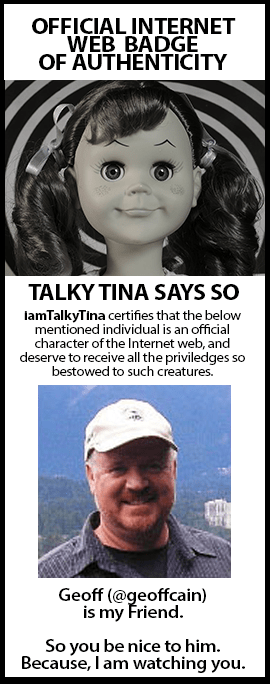There are some interesting paradoxes that arise from alternatives to copyright. I have seen a big push to license articles and textbooks with a CC-by license (free to use if you attribute the author) and to avoid the CC-by-nc (free to use with attribution and for non-commercial purposes). The licenses available at Creative Commons have their use. They are all equally important because each one addresses a particular purpose. I think that there are times to use CC-by and a time to use CC-by-nc. But there are still problems with just CC-by, even though I am a big fan of that and CC-by-sa (Share alike).
The motivation to work with a textbook should be that it is the best one available with an open license, not that it is the one textbook you will be free to one day make a profit from. I would like to see the proliferation of good work because it is good work: not the proliferation of a work because it is licensed in such a way that a private corporation can profit from it. There are too many companies locking down content in ways that make them less accessible to the public.
One company started out by promoting open textbooks and the Creative Commons. Next, they created and charged for a platform to deliver that content. Then they needed to expand their business and make a profit for their shareholders. That is when the problems came in – “sustainabilty.” The open textbooks were Creative Commons licensed as CC-by (you only have to attribute the work to the author). In other words, they could not profit from those books unless they pulled that license and that is exactly what they did. Fortunately, Saylor.org managed to pull down and re-host the textbooks with the truly open license and that other company no longer calls itself an open textbook platform.
I voiced concerns about this when I was on an OER board in California about 7 or 8 years ago, and what I found was that it was very difficult to talk to members of the OER community about the problems with profit – I came across as “anti-business” and was actually called a “Socialist” <gasp!> in a public meeting. I am not anti-business or even anti-profit – but I am vehemently for open access to information and, unfortunately, money can be used to guide, promote and eventually kill a work. This is what happens to commercial textbooks! Have we not learned anything about the limitations of the commercial market?
I understand the importance of the different licenses but it is ironic that the most open license can lead to the shutting down of public access to supposedly open work. David Bollier wrote in his posting, “The Commons, Short and Sweet” that copyright “…privatizes and commodifies resources that belong to a community or to everyone, and dismantles a commons-based culture (egalitarian co-production and co-governance) with a market order (money-based producer/consumer relationships and hierarchies).” And yet this is exactly what can happen with the CC-by license.
There are arguments against the NC license that warn that if I use that license, corporations won’t be able to put my work on a DVD and distribute it with their magazine. Well so what? Maybe I don’t want my work distributed with their magazine. The irony of the argument is that my digital work (which I create for free) will not be available to prop up a dying industry! I can’t think of one magazine that bundles DVDs with their product that wouldn’t sue me if I just started posting their articles and materials on my blog. My argument is not against the magazines or capitalism, but it is against locking my content down in their business model.
Michael W. Carrol makes the point that “Granting readers full reuse rights unleashes the full range of human creativity to translate, combine, analyze, adapt, and preserve the scientific record, whereas traditional copyright arrangements in scientific publishing increasingly are inhibiting scholarly communication.” But the problem with that is that scientific publications are so expensive right now that many libraries can’t afford to subscribe to them. How does giving the work to a commercial corporation for free solve that problem?
Aaron Wolf has an argument against the non commercial license that goes “I doubt a network TV show, for example, would use a song licensed as CC BY-SA (other than by paying the creator under a regular copyright license), because they wouldn’t want to license the whole show under Creative Commons.” Who says that they would have to license the whole show that way? Where has that been litigated? Are there no other interpretations of the license? Who gets to decide?
Saying that something is not truly open because it is not open to economic exploitation is ludicrous in all the Latinate meanings of the word. If we value education, we need to encourage our governments to support and invest OER in the same way that they support the military or industry. Openness includes access – if we focus our resources on working with corporations for our OER, then we risk seeing the materials that are not as “sustainable” (that is, profitable) withering away. We also risk having the openly licensed materials getting locked up behind “platforms” and “services.” And what happens when those corporations go away? Or get a new board not as hip to openness as the current one? I appreciate the efforts at the California State University system and the community colleges in creating and promoting OER and Open Textbooks but I would like to see more of a national/international effort that values access over profit.




